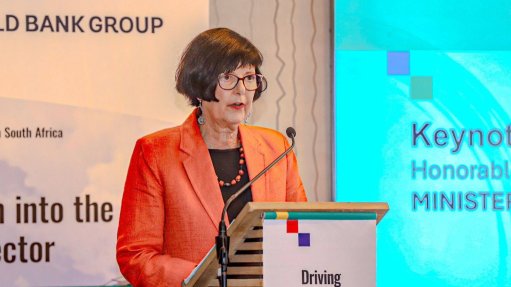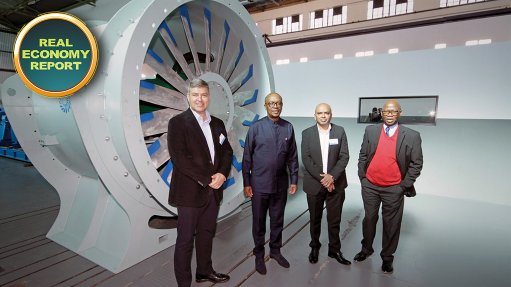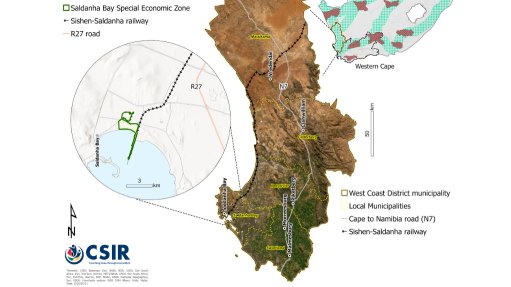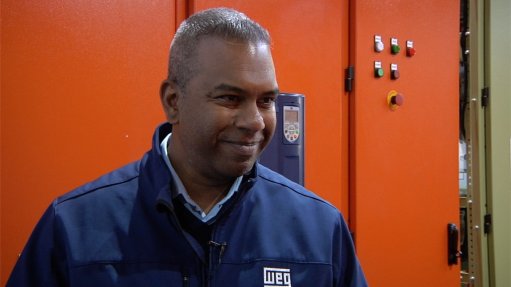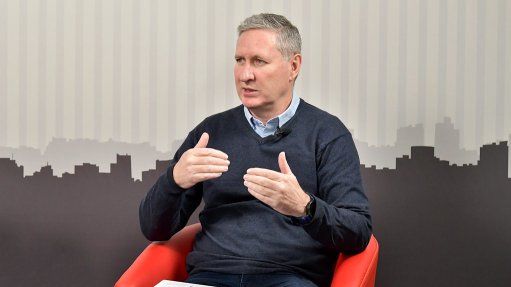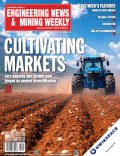Agriculture and ESG: We’re only food secure when our farmers are profitable
This article has been supplied and will be available for a limited time only on this website.
Today, agriculture is driven by 2 global obligations: feeding a growing population and protecting our planet.
Nowhere is this more evident than in South Africa, where farmers face the dual challenge of producing affordable food while conserving increasingly scarce natural resources. At the recent Nampo Harvest Day, a Nation in Conversation panel discussion shed light on this critical intersection, offering a compelling case why sustainability should also be a business strategy.
South African farmers have long shown exceptional productivity, even under challenging conditions. But their ability to sustain this performance requires more than resilience: It requires financial viability. Farmers can only implement environmentally sustainable practices if they are economically sustainable. And that’s where environmental, social, and governance (ESG) strategies and financiers play a valuable role.
Executive Head of Mid-Corporate at Nedbank, Herman de Kock, who participated in the panel discussion, says that sustainability can be both a moral imperative and a commercial opportunity if approached strategically. ‘It’s about understanding the finite capacity of natural resources and how we can use them, not only responsibly but also strategically to increase production. We believe the key lies in adopting a balanced and strategic approach to investing in sustainability within farming operations. Ultimately, this ensures improvements in your bottom line. In other words, it’s about sustaining your business while also contributing to national food security.’
He adds that green finance is gaining traction in South Africa, but more needs to be done. ‘The financial sector needs to focus on developing products that align sustainability with improved credit profiles. This includes structuring loans to be cash-flow friendly; offering lower interest rates for lower-risk, sustainable investments; and creating financing tools that support integrated, not just isolated, improvements.'
'Too often, sustainability is viewed through a narrow lens. It’s not just about solar panels or water-saving irrigation. It’s about a holistic strategy that integrates soil health, water management, alternative energy, and governance practices. Financial institutions like Nedbank are working to finance these comprehensive plans, not just infrastructure upgrades,’ he says.
Sustainability must be economically feasible
A consistent message emerged: ESG must enhance profitability.
Real-world examples, like a study conducted with the World Wide Fund for Nature (WWF) on dairy operations, prove that integrating sustainable water, soil, energy, and governance components yields measurable returns. But De Kock says that sustainability must be understood holistically.
‘Go beyond considering just the financing that enables the investment to understand the actual business impact. Sustainability investments take time to yield results, so you need to assess and manage the risks. It’s not only the bank’s role to support this through finance. We can offer advice and financial expertise but, especially on an industrial scale, you also need experts in this field to evaluate whether the investment brings a tangible return.'
'Ultimately, your return is improved profitability, which in turn improves the bankability of your farming operation. You need to consider sustainability from this broader perspective, and directors will increasingly be held accountable for managing climate-related risks and ensuring transparency in their disclosures. Failure to do so could lead to personal liability,’ adds De Kock.
Beyond this, sustainability enhances global competitiveness. Meeting international ESG standards provides export advantages, especially in a world increasingly influenced by frameworks like the EU’s Carbon Border Adjustment Mechanism (CBAM). Compliance is no longer optional for exporters; it’s a prerequisite for access. Larger agribusinesses may be well positioned to adapt, but small-scale producers risk exclusion without targeted support and clearer regulatory frameworks.
Technology and data: Allies in ESG tracking
The panel stressed the importance of data transparency and integrity to validate sustainable practices, and De Kock emphasised the crucial role that data and technology plays in evaluating ESG metrics from a financing perspective. Yet, many farmers are reluctant to share data, citing concerns over privacy, cost, and competitive risk. However, farmers are realising that rising input costs mean that understanding net profit per hectare is more important than yield alone. ESG reporting is often overlooked, but if ESG frameworks are tied directly to profitability and risk reduction, it is believed that adoption among producers will rise.
Ultimately, however, sustainable agriculture cannot be the farmer’s burden alone. Governments need to ensure that policies are fair and achievable. Financial institutions must innovate further to provide accessible green finance. Consumers must support sustainability through informed purchasing decisions. And agribusinesses across the value chain must partner with farmers to ensure that sustainability is embedded, not imposed.
De Kock agrees. ‘It comes back to the fact that it's everyone's responsibility. And from a banking perspective, the focus isn’t just on financing capex. It’s also about bringing in expertise to help ensure that the investment achieves its intended outcome. That’s critical. It’s not just about the money — it’s about education, assessment, and support.’
Sustainable agriculture in South Africa is not a luxury – it’s a necessity. But for sustainability to succeed, it must be profitable. Farmers must be equipped with the right tools, knowledge, and incentives to adapt. By integrating ESG strategies into the heart of farming and finance, South Africa can secure its food systems, protect its environment, and enhance global competitiveness. By making sustainability practical, profitable, and inclusive, we can future-proof agriculture for generations to come. As a panellist put it: ‘Systemic change happens when sustainability becomes economically viable at the farm gate.’
Comments
Announcements
What's On
Subscribe to improve your user experience...
Option 1 (equivalent of R125 a month):
Receive a weekly copy of Creamer Media's Engineering News & Mining Weekly magazine
(print copy for those in South Africa and e-magazine for those outside of South Africa)
Receive daily email newsletters
Access to full search results
Access archive of magazine back copies
Access to Projects in Progress
Access to ONE Research Report of your choice in PDF format
Option 2 (equivalent of R375 a month):
All benefits from Option 1
PLUS
Access to Creamer Media's Research Channel Africa for ALL Research Reports, in PDF format, on various industrial and mining sectors
including Electricity; Water; Energy Transition; Hydrogen; Roads, Rail and Ports; Coal; Gold; Platinum; Battery Metals; etc.
Already a subscriber?
Forgotten your password?
Receive weekly copy of Creamer Media's Engineering News & Mining Weekly magazine (print copy for those in South Africa and e-magazine for those outside of South Africa)
➕
Recieve daily email newsletters
➕
Access to full search results
➕
Access archive of magazine back copies
➕
Access to Projects in Progress
➕
Access to ONE Research Report of your choice in PDF format
RESEARCH CHANNEL AFRICA
R4500 (equivalent of R375 a month)
SUBSCRIBEAll benefits from Option 1
➕
Access to Creamer Media's Research Channel Africa for ALL Research Reports on various industrial and mining sectors, in PDF format, including on:
Electricity
➕
Water
➕
Energy Transition
➕
Hydrogen
➕
Roads, Rail and Ports
➕
Coal
➕
Gold
➕
Platinum
➕
Battery Metals
➕
etc.
Receive all benefits from Option 1 or Option 2 delivered to numerous people at your company
➕
Multiple User names and Passwords for simultaneous log-ins
➕
Intranet integration access to all in your organisation








